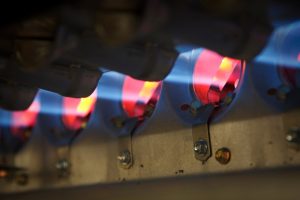 Forced-air heaters are some of the most common heaters in the country. If we had to guess what kind of heater you have in your home right now, we’d be correct in guessing that you have a furnace (statistically speaking, at least). Some of you may also have heat pumps, another type of forced-air heater that also doubles as an air conditioner.
Forced-air heaters are some of the most common heaters in the country. If we had to guess what kind of heater you have in your home right now, we’d be correct in guessing that you have a furnace (statistically speaking, at least). Some of you may also have heat pumps, another type of forced-air heater that also doubles as an air conditioner.
While both of these systems operate quite well, they do have their share of common repair issues, just as any other heater would. We don’t want you to be stuck in the cold, so make sure to call for furnace repair in Portland, OR at the first sign of trouble.
Furnaces
Some of the biggest furnace repair issues come from those fueled by natural gas. Although electric fueled furnaces exist, they don’t have the same dangers.
Cracked Heat Exchanger
The heat exchanger is the part of the furnace that actually heats the air. If there’s any damage to the heat exchanger, it creates the risk of a carbon monoxide leak, and that can be deadly. Carbon monoxide is colorless and odorless, so the only way to know there’s been a leak is through a carbon monoxide detector. Luckily, these are inexpensive for the amount of damage they can prevent.
Gas Odors
Although not always a problem with the furnace itself, smelling gas can be an indicator of gas leaks. Gas is naturally odorless, too, but the gas companies deliberately mix a chemical in the gas that smells like rotten eggs. If gas odors are coming from the furnace itself, turn off the furnace immediately and call for emergency repairs.
No Heat
Whether it’s a gas or electricity powered furnace, a lack of hot air is most likely due to a problem with the heating elements. Regardless of what kind of furnace you’re using, neglecting maintenance can leave these crucial parts in disrepair.
Heat Pumps
Heat pumps facilitate the transfer of warm air via refrigerant. Although highly effective for heating and cooling, it can bring about some unique problems.
Frozen Outdoor Unit
Low outdoor temperatures can sometimes cause the heat pump’s outdoor unit to freeze over. When this happens, the heat pump will go through a defrost cycle. This means your home will feel cold air during that time, but it should only last about 15 minutes. Any longer will mean it’s time to call for a repair.
Frozen Indoor Unit
If it’s the indoor unit that’s freezing over, it could be due to a refrigerant leak. Refrigerant is necessary for the heat transference process, so any lost through a leak will have an adverse effect on the system. That can mean the evaporator coil—found in the indoor unit—can become so cold that it freezes over.
No Heat
If the heat pump is only blowing cold air, first double-check that it’s switched to “heating” mode. Then, check the thermostat to make sure it’s not on a cooling program. Otherwise, your heating issues could be due to the previously mentioned refrigerant leak, a duct leak, or compressor failure. Either way, the best course of action is to shut off the unit and call for repairs.
